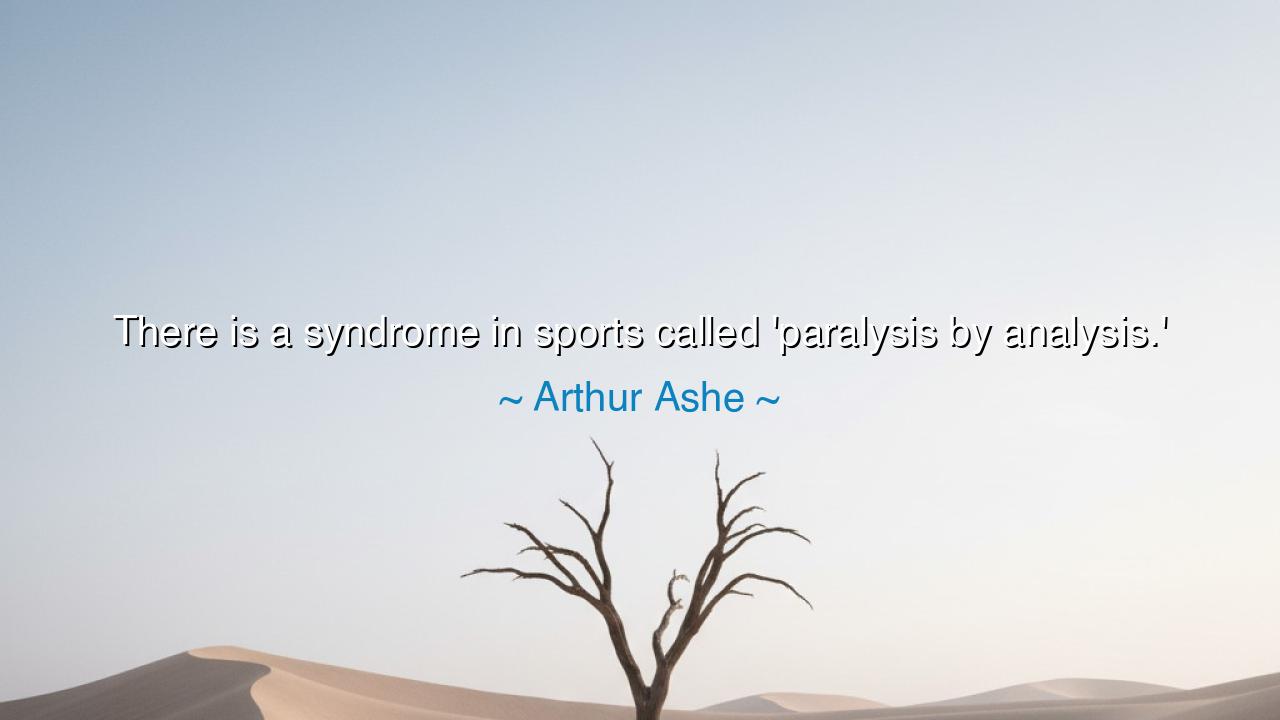
There is a syndrome in sports called 'paralysis by analysis.'






When Arthur Ashe declared, “There is a syndrome in sports called ‘paralysis by analysis,’” he revealed a truth that extends far beyond the tennis court, into the battlefield of every human endeavor. His words describe the danger of overthinking—of drowning in strategy, detail, and doubt until action itself is frozen. It is a warning that the mind, when too consumed by calculation, can betray the body and spirit, leaving one powerless when strength is most needed.
The ancients knew this peril. In war, hesitation could mean ruin. The great general Alexander the Great often acted swiftly and decisively, trusting instinct shaped by long training. Had he stopped to analyze every possibility, he might never have crossed the Hellespont, never challenged the Persian empire, never carved his name into the annals of history. Ashe’s phrase “paralysis by analysis” echoes this wisdom: too much thought, at the wrong moment, can be as deadly as too little.
In the arena of sports, this paralysis is most visible. The athlete, trained by countless hours of discipline, knows the motions by heart. Yet when the mind interferes—counting steps, calculating angles, doubting strength—the natural rhythm is broken, and failure follows. A tennis player may miss an easy serve, a runner may stumble at the start, a basketball player may falter at the free throw line, all because thought overcame instinct.
History offers the tale of Hamlet, prince of Denmark, who thought too long and acted too little. Though not an athlete, he embodies the same truth: in delaying, in analyzing endlessly, he allowed opportunity to slip away, and ruin came upon him. In contrast, Julius Caesar declared, “I came, I saw, I conquered.” Swift action, rooted in preparation, triumphed where endless deliberation would have failed.
Ashe’s teaching is not an attack upon reason. Analysis is vital in preparation. Study, strategy, and foresight are the tools of victory. But when the moment of action arrives, analysis must give way to trust—trust in training, in instinct, in courage. The mind that prepares is a blessing; the mind that hesitates in the instant of battle is a chain.
The lesson is clear: prepare with wisdom, but act with decisiveness. Do not let fear of mistakes, or obsession with perfection, rob you of your strength. Once the moment arrives, release the weight of analysis and let your spirit move freely. For hesitation is the enemy of victory, while action, even imperfect, carries you forward.
Practically, this means embracing practice and preparation fully, so that in the moment of contest—whether in sports, in business, or in life—you may act without hesitation. It means silencing the inner voice that doubts and replacing it with trust. Train hard, think deeply, but when the hour strikes, step forward boldly, for action is the path through which greatness is revealed.
Thus, Arthur Ashe’s words remain a timeless teaching: beware the paralysis of overthinking. In the hour of decision, let your mind be clear, your heart be steady, and your will be strong. For victory belongs not to the one who calculates forever, but to the one who dares to act.






AAdministratorAdministrator
Welcome, honored guests. Please leave a comment, we will respond soon